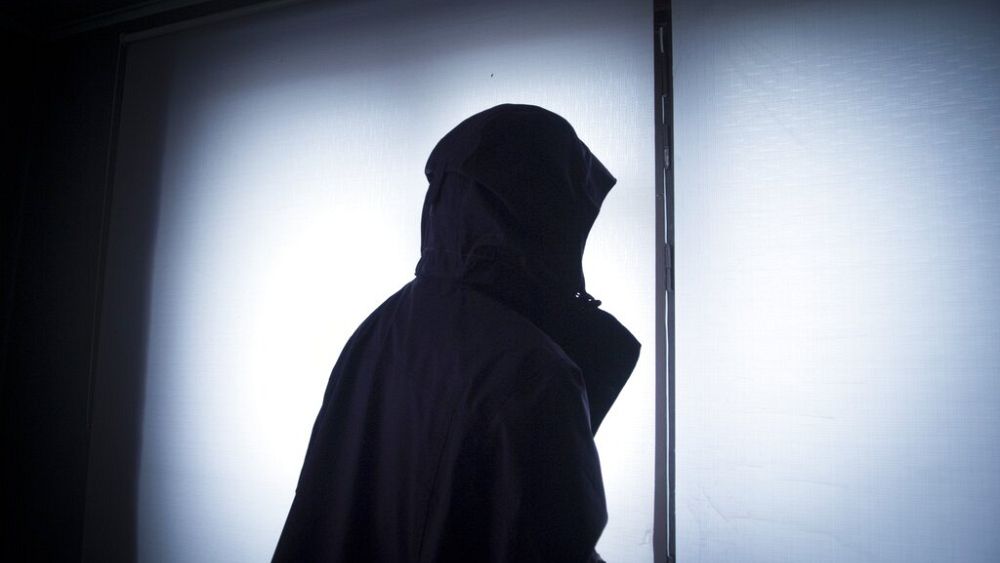Draconian laws and repression are forcing Russia’s LGBT community to leave the country, but those who cannot escape face an increasingly grim fate.
“My friends and I feel really insecure and isolated”says Sophia Agapov, a member of the LGBT community in St. Petersburg. “Literally every step can lead to legal action”.
“It’s like a second Covid-19 lockdown. It’s better to stay at home”she declared to Euronews, by text message.
Over the weekend, police raided gay nightclubs, bars and saunas in central Moscow. This muscular operation, during which people were allegedly ordered to lie face down on the groundcame a day after Russia’s highest court banned the “international LGBT movement”, calling it “extremist“.
And this, although no LGBT “movement” officially exists.
Although she has tried to leave since the February 2022 invasion of Ukraine, Sophia Agapov now hopes to escape Russia quickly.
“It’s very difficult to do if you are not very rich or if you are not an information technology specialist”she assures. “I am not going to apply for asylum because, in my opinion, it is the last resort. My house was not destroyed by a bomb and I am not an LGBT activist who can be sent to prison”.
Attacks on LGBT rights in Russia are far from new.
“I was not surprised by this decision”confides the professor Richard Moledirector of the School of Slavic and East European Studies at UCL. “Whenever things go wrong for the Russian government, it needs a distraction”.
He cites a long list of examples. Following protests following Vladimir Putin’s re-election in 2013, Moscow passed a highly controversial law on “homosexual propaganda.”
Described by Human Rights Watch (HRW) as “classic example of political homophobia“, this law prohibits informing children about lesbian, gay, bisexual and transgender relationships.
In 2022, while the war in Ukraine “not going very well”Richard Mole cites how Vladimir Putin extended the controversial law to all ages and increased fines to 400,000 rubles (4,000 euros) for violators.
Many LGBT Russians with connections, money and education have moved to the West over the years, but not everyone has. Those who do not receive these benefits face increased repression by the state.
“Our social media can be used against us”confides Sophia Agapov, a queer woman, specifying that she was now hastening to delete online images of the “gay pride” events she had attended in the past, “in case”.
“People have already been arrested for posting political views, and this is likely to continue with ‘extremist views’ being shared on Twitter.”she fears.
Recognizing this “state violence”, Charlie Walkera comparative sociologist and co-director of the Center for East European and Eurasian Studies at the University of Southampton, describes how anti-LGBT policies have fueled feelings of homophobic vigilantism.
He cites cases of men pretending to be gay on dating apps and murdering their partners to “defend Russia”, or drunken brawls in which LGBT people are killed, with authorities taking a lax approach regarding these crimes.
THE Center for Independent Social Research, a non-governmental research institute based in Russia, found that violence against LGBT people in Russia approximately doubled in the five years after the adoption of the “gay propaganda” law in 2013.
“We are no longer safe because anyone can be aggressive and want to report us. People have generally become more hostile,” explains Sophia Agapov to Euronews. “It’s never been like this in my life.”.
Homosexuality is a Western disease
This grim situation has pushed people underground.
Young LGBT Russians feel a social isolation and alienation increased because of their sexuality, according to an HRW report, which also found that harassment, bullying and discrimination from their peers had increased.
“It’s normal for a human being to look for the love of their life, to look for their other half. The couples I know have to be very, very careful in public and pretend to be ‘friends’ even more often than before “, says Sophia Agapov.
“Personally, I probably won’t start a new relationship until I leave the country”she continues.
These problems are compounded by the fact that there are no anti-discrimination laws in Russia, meaning people can be fired or kicked out of their homes because of their sexuality.
According to sociologist Charlie Walker, Vladimir Putin ultimately pushes for ultra-conservatism to consolidate his hold on power.
He claims the Russian leader is invoking the LGBT community – which is more visible in the West – to argue that Russian society and traditions are threatened by Western values.
“LGBT people are used as a symbol of foreign threat”explains Charlie Walker. “Part of Vladimir Putin’s regime’s bid for legitimacy is to protect Russia’s special status as a unique culture, threatened by what it sees as immoral political and cultural developments in the West”.
“This is a populist approach”he adds.
Although homosexuality was legalized in Russia in 1993, Richard Mole explains that anti-LGBT sentiment resonates with some people because the emergence of this community is “closely associated” to the economic collapse and disintegration of the Soviet Union in the 1990s. The Orthodox religious sentiment of the population also plays a role.
A terrible rainbow plague
As the war in Ukraine drags on, experts told Euronews they fear Moscow is doubling down on homophobia and authoritarianism.
“The only way to change direction is to end Vladimir Putin’s regime”says Charlie Walker.
Meanwhile, Richard Mole also fears that the Russian leader will not stop there. He told Euronews that Russia would likely pursue more discriminatory policies as the 2024 elections approach.
“Vladimir Putin is a creative man”he said, suggesting the next step could be to take children away from LGBT parents or to re-criminalize homosexuality.
“I’m not sure what he would do after that.”


